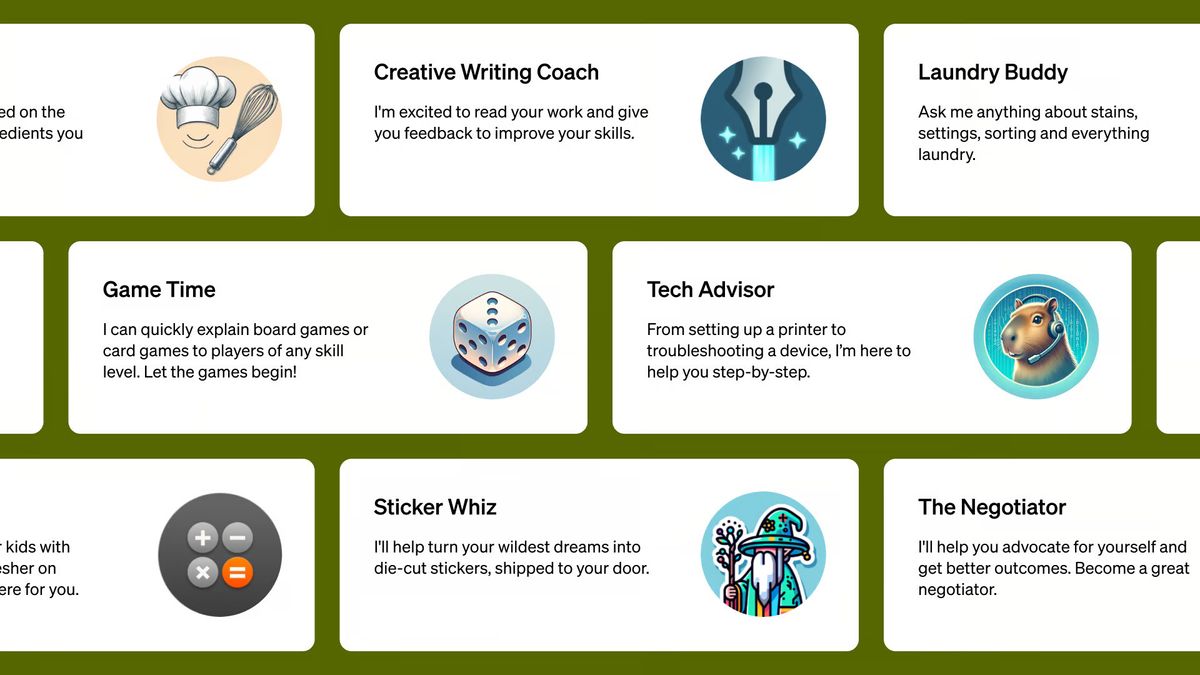OpenAI, the leading artificial intelligence company, made an exciting announcement during its first tech conference. They introduced a new service that allows users to create their own customized version of ChatGPT, the popular chatbot, without the need for coding skills. These custom chatbots, called GPTs, can be tailored to specific needs and can handle various use cases in different scenarios.
One major advantage of this new service is that businesses can create a special GPT that only their employees can access. For example, companies can utilize a GPT to provide business advice to their tech startups. Parents can also benefit from this new feature by creating a GPT that helps their kids solve challenging math problems.
This introduction of custom GPT models is seen as an evolution of the Custom Instructions feature launched by OpenAI in July. The company initially aimed to give users some control over their AI, but it seems that users wanted more. OpenAI CEO Sam Altman demonstrated the process of creating a custom GPT model during the event, showcasing its simplicity.
To get started, users need a subscription to ChatGPT Plus, priced at $20 per month, or ChatGPT Enterprise for business owners. Once subscribed, users can navigate to their personal account and select the “Create a GPT” option. This will lead them to the GPT Builder tool, which will guide them through the customization process. Altman demonstrated by instructing the platform to generate a chatbot providing business advice to tech startups.
The GPT Builder will then create an AI model, which will be shown on the right side of the screen for preview. The tool will prompt users to provide further details, such as the chatbot’s name and thumbnail image. Users can also upload their own data files to enhance the AI’s capabilities, and even integrate the DALL-E image generator.
After customization, users can save their chatbot for future adjustments or release it by sharing it with others via a link. OpenAI also plans to support select third-party services so that users can access data from sources like emails and databases. During a live test, a developer connected her Google Calendar schedule to the custom AI through the Zapier tool. The chatbot was then able to display her day’s schedule, including highlighted scheduling conflicts.
OpenAI emphasizes user consent and data security. They assure that chats between users and their personal GPTs will remain private unless explicit consent is given. However, OpenAI has systems in place to review user-generated GPTs to ensure compliance with company policies. The company aims to keep the platform free from fraudulent activities, hateful content, and adult themes.
Currently, the GPT Builder is in beta and available to subscribers of ChatGPT Plus. In November, OpenAI will launch the GPT Store, where verified builders can showcase their creations. Users will be able to search for chatbots across various categories like productivity and education. In the future, users may even have the opportunity to make money from their chatbots based on their usage.
These developments by OpenAI are indeed impressive and are anticipated to revolutionize the world of chatbots. The GPT Store holds the promise of uncovering the most innovative and useful chatbots. For more information on AI tools, TechRadar has compiled a list of the best AI tools for 2023. Stay tuned for the exciting possibilities that lie ahead in the world of AI-powered chatbots.

I have over 10 years of experience in the cryptocurrency industry and I have been on the list of the top authors on LinkedIn for the past 5 years.

